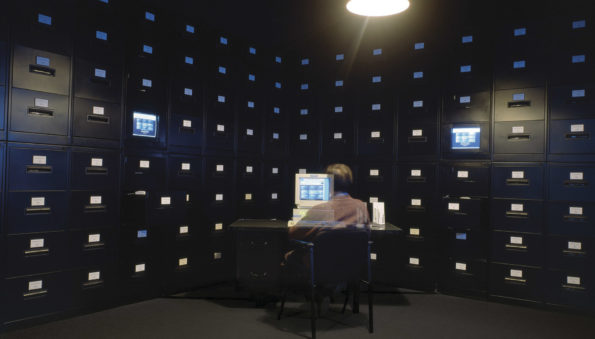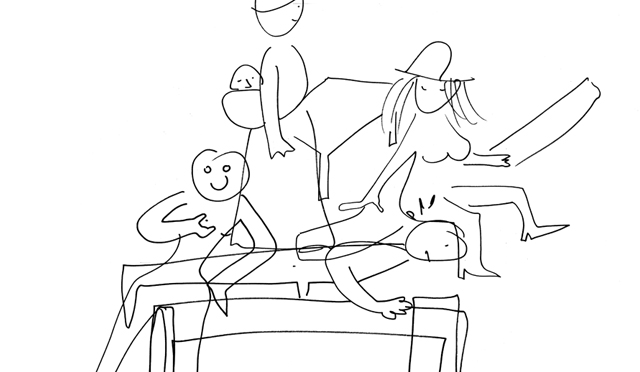Search
To search for an exact match, type the word or phrase you want in quotation marks.
A*DESK has been offering since 2002 contents about criticism and contemporary art. A*DESK has become consolidated thanks to all those who have believed in the project, all those who have followed us, debating, participating and collaborating. Many people have collaborated with A*DESK, and continue to do so. Their efforts, knowledge and belief in the project are what make it grow internationally. At A*DESK we have also generated work for over one hundred professionals in culture, from small collaborations with reviews and classes, to more prolonged and intense collaborations.
At A*DESK we believe in the need for free and universal access to culture and knowledge. We want to carry on being independent, remaining open to more ideas and opinions. If you believe in A*DESK, we need your backing to be able to continue. You can now participate in the project by supporting it. You can choose how much you want to contribute to the project.
You can decide how much you want to bring to the project.

When we decided to speak of archives we couldn’t possibly have imagined such a spectacular month. We began 2018 with Juanjo Santos, who reviewed the exhibition of this winter – or one of them – The Entropic Box, curated by Francesc Torres at the Museu Nacional d’Art de Catalunya (MNAC).
We speak of ‘archives’, but we also speak of ways of bringing things up, of expounding them, of recovering and storing them … and even of indigestions and rereadings. We listened in on a conversation between Maite Muñoz and Alicia Escobio, in other words Vista Oral, but also on conversations with Antoni Hervàs, Enric Farrés Duran and Hailey Loman; we discussed what was created at the Museu d’Art Contemporani de Barcelona (MACBA) and the Los Angeles Contemporary Archive (LACA), and reviewed their obsessions and archive evils.
Returning to the month’s contents at A*DESK, Anna Dot presented the ways in which we, naïve users, generate archives and data on the Net. She described our unwitting tendency to ‘share’ everything, the work of Antoni Muntadas, the collection that Alicia Framis keeps and makes public with The Room of Forbidden Books (2014) and the Aids Anarchive research project undertaken by Equipo Re (Aimar Arriola, Nancy Garín and Linda Valdés).
In her turn, Aymara Arreaza revealed the specific characteristics of digital archives (related to data storage, volatility and speed) in the Travel to My Website project by Mario de Santamaría that certainly evokes travel.
The month concluded with artist Rubén Grilo, who reflected on the value of art starting from the idea of obsolescence (of archives, data, technologies). If obsolescence is often provoked in order to generate value in an art system that identifies the work with the artist, what happens when one or the other falls into obsolescence?

A*DESK is a critical platform focused on publishing, training, experimentation, communication and dissemination in relation to contemporary culture and art, which is defined by transversality. The starting point is contemporary art, because that is where we come from and this awareness allows us to go much further, to incorporate other disciplines and forms of thought in order debate issues that are relevant and urgent for understanding our present.
"A desk is a dangerous place from which to watch the world" (John Le Carré)